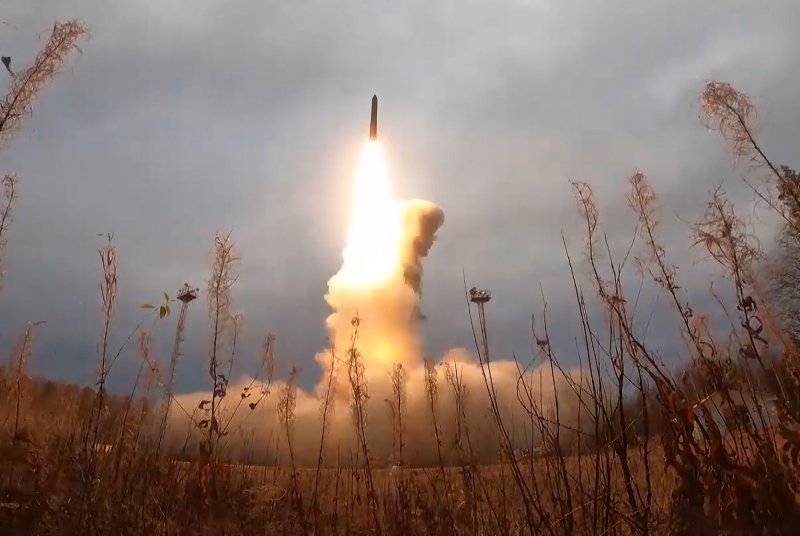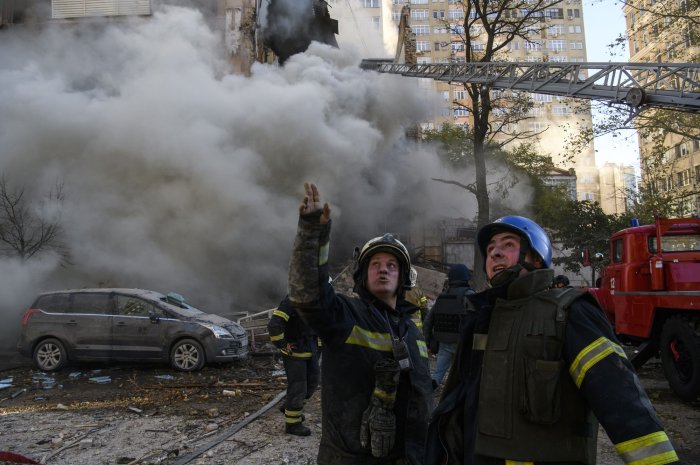1 of 2 | A Yars intercontinental ballistic missile is test-fired as part of Russia's nuclear drills from a launch site in October, in Plesetsk, northwestern Russia. Screenshot courtesy of Russian Defense Ministry Press Office |
License Photo
Nov. 28 (UPI) -- Nuclear arms negotiations between Russia and the United States remain on hold after Russia postponed talks that were slated to take place this week.
The United States has not held annual inspections of Russia's nuclear armament since inspections were suspended in March 2020 due to the COVID-19 pandemic. Inspections were to resume in August but Russia denied moving forward due to the United States' support of Ukraine.
Russia and the United States entered the New Strategic Arms Reduction Treaty in 2011, putting limits on the Russian Federation's intercontinental nuclear weapons. The treaty was extended through Feb. 4, 2026.
Negotiations over inspections under the Bilateral Consultative Commission were planned for later this week in Cairo, Egypt. According to the State Department, Russia said it will propose new dates for meetings to take place.
"The United States is ready to reschedule at the earliest possible date as resuming inspections is a priority for sustaining the treaty as an instrument of stability," the spokesperson said, according to NBC News.
The Bilateral Consultative Commission has not met since 2021 in Geneva, just months before Russia invaded Ukraine. The invasion of Ukraine was not expected to be discussed during nuclear arms negotiations.
According to a fact sheet on the New START from the State Department, the United states has deployed 659 intercontinental ballistic missiles, submarine launched ballistic missiles or heavy bombers. Russia has deployed 540.
The treaty calls for 18 on-site inspections of various types per year. The United States and Russia must disclose how many warheads it has on each delivery vehicle at the base. Both sides must also disclose when a solid-fueled intercontinental ballistic missile is moved from a production facility.
"Although the United States has raised implementation-related questions and concerns with the Russian Federation through diplomatic channels and in the context of the BCC, the United States has determined annually since the treaty's entry into force, across multiple administrations, the Russian Federation's compliance with its treaty obligations," the State Department said.
Firefighters conduct work while smoke rises from a building after it was attacked by Russian drones in Kyiv, Ukraine, on October 17, 2022. Photo by Vladyslav Musiienko/UPI |
License Photo
















